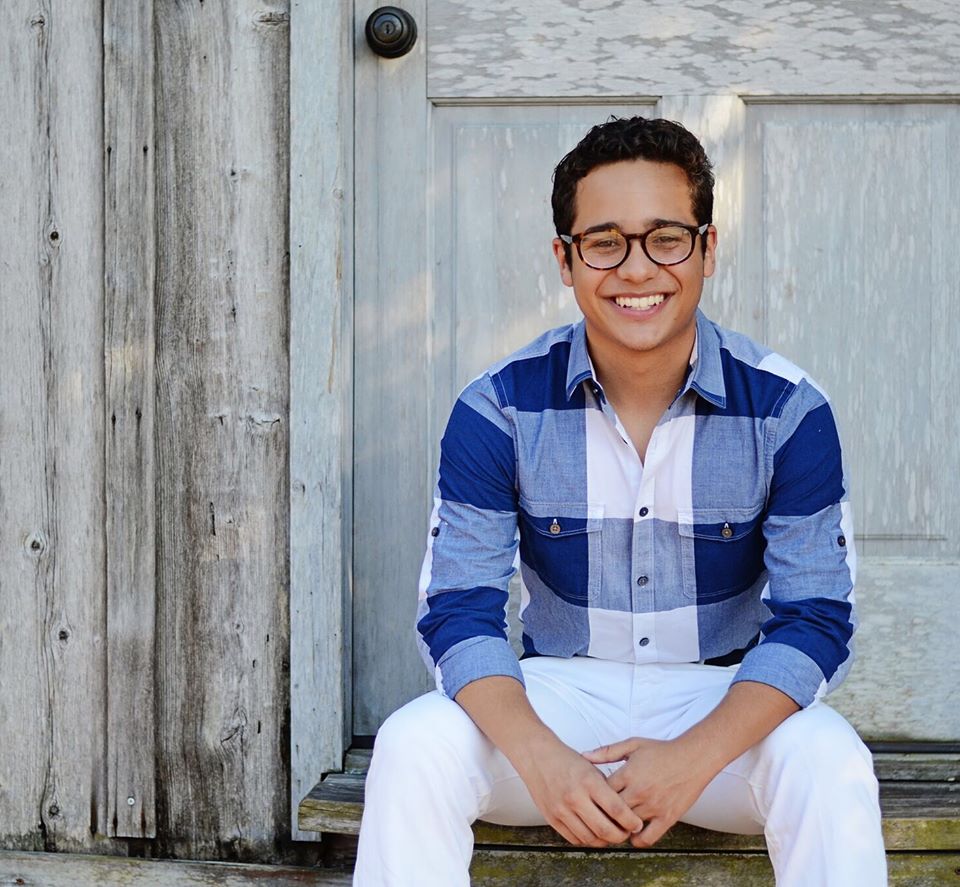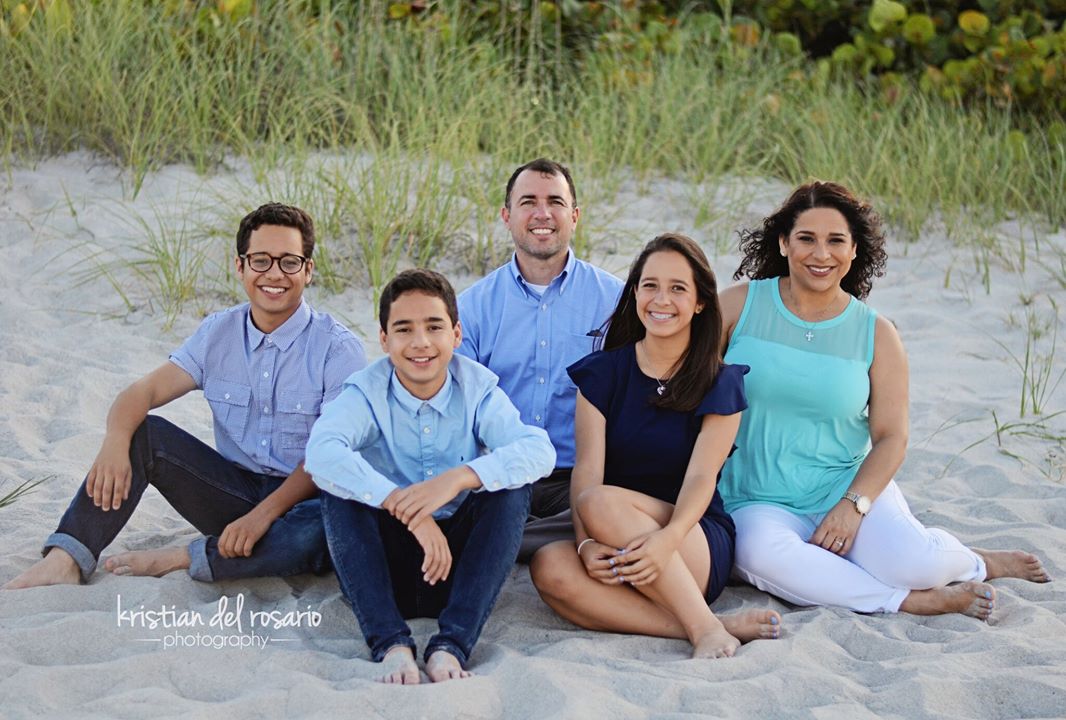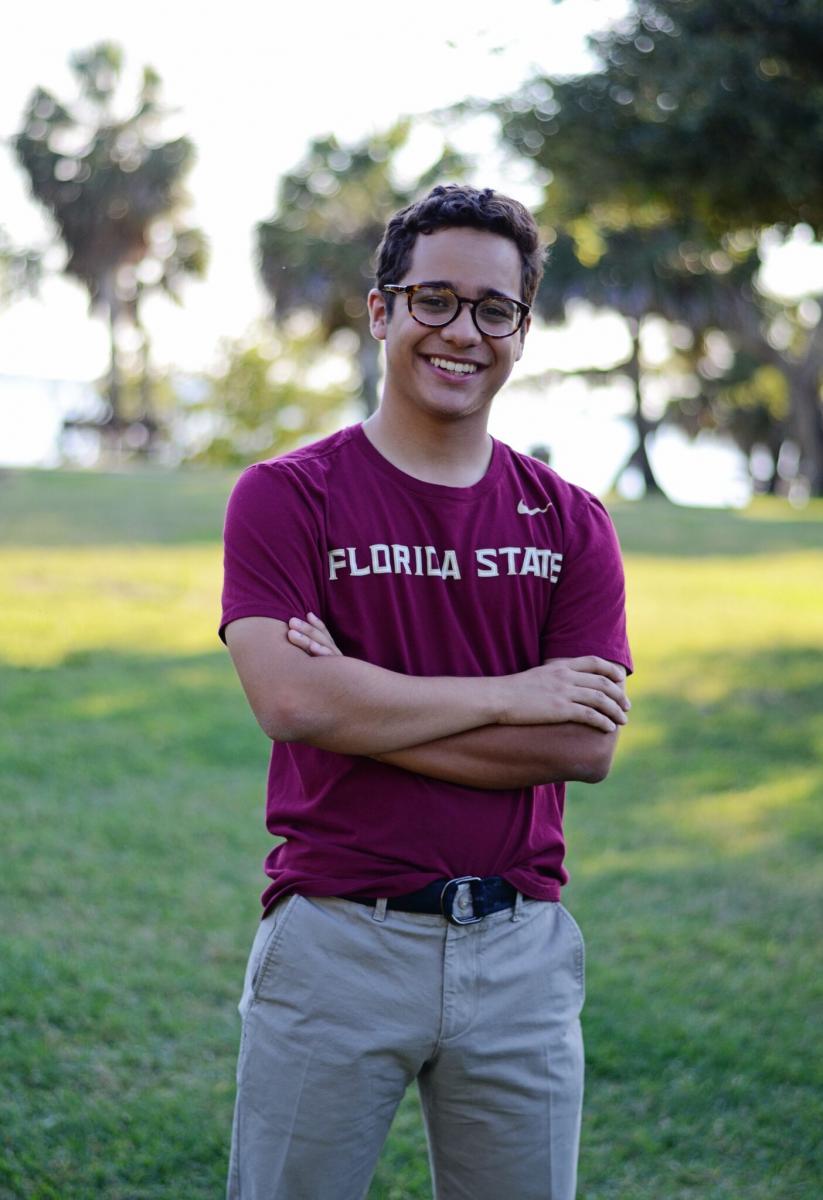I Am Florida: Mexican-American Student Activist Sergio Carlos
I Am Florida: Sergio Carlos
Over the decades, the LGBTQ community has been subject to violence and discrimination that has come to a head with the recent massacre at Pulse Nightclub. It is a community that has been united in their oppression, but even more so in their resilience, strength, and hope. Now, more than ever, the stories of people within this community serve as a reminder of our humanity, our diversity, and our collective drive toward positive change. Through sharing stories of inequality and advocacy from people across the state, Equality Florida is elevating ally and community voices to come out and say #IAmFlorida. I am here. And most of all, I matter.

Sergio Carlos has filled many roles and identities throughout his life, including student, athlete, activist, journalist, Mexican-American citizen, and open and proud member of the LGBTQ community. The causes he cares most passionately about reflect this depth of experience — from helping to get a non-discrimination policy passed by the school board in his home of Brevard County to serving as a summer organizing fellow for the Florida Democratic party, Sergio has made working toward equality an essential component of the life he lives every day.
Sergio was born in Mexico and immigrated to the United States with his family when he was very young, moving from Michigan to Texas and finally settling in Florida when he was six years old. He graduated from the Brevard County school system as part of the West Shore Class of 2016 and plans on attending Florida State University in the Fall. He came out to his family as gay in early high school, and has since been deeply invested in LGBTQ rights and advocacy, expressing his passion both on and off campus. He currently works as a summer organizing fellow for the Florida Democratic party, and one of the main reasons he got involved was his desire to help pass the Equality Act.
Sergio began our conversation by explaining why continuing to fight for equality is so important to him. “After the shooting in Orlando, that’s when it really hit me that even though we’ve passed marriage equality, and it seems like LGBT rights are on the rise, there’s still a lot of hate out there.” Sergio’s voice rang with conviction as he continued, “It put my work into perspective as to why it’s so important to get LGBT friendly politicians in office to pass these important HROs.”
While discussing the progress he’s seen in his personal experience, Sergio spoke at length about the positive impact that being out and proud can have on the community and loved ones around you. “I think one of the most important things is that LGBT and queer people are just visible — I had an uncle who was a very conservative Roman Catholic. When I came out to him and my parents were there and supported me, he changed his mind on gay marriage and started posting more supportive things on Facebook. As time progresses and as people start realizing people are no different than anyone else, it’s inevitable that change will be made and equality achieved.”

Alongside this positive shift, Sergio noted a marked generational gap — one he believes develops naturally with limited personal experience and exposure to the LGBTQ community. “Florida, both the community and the friends I’ve made, have been accepting. Even people who identify more conservatively [in my generation] have no problem with having a gay friend or gay classmate. But if you go to the school board or city council meetings, you see a group who hasn’t had any experience or interaction with gay and queer people in their lives and are thus more likely to push against the human rights ordinances that are coming.”
Sergio’s belief that exposure to diversity results in a more inclusive environment has been reinforced by his experience as a gay student athlete. “One issue I care about a lot is LGBTQ athletes,” Sergio began. “From the moment I was able to kick a ball, I have been in love with soccer. The jogo bonito, or ‘beautiful game,’ is an integral part of my heritage — my father played the game, as did my uncles and grandfathers.” After playing soccer for 10 years, however, Sergio grew disheartened by the homophobia he experienced on the field.
“Being gay in sports, especially for a male, is a war within one's own mind. Homophobic slurs became de rigueur in games in order to assert one's ‘dominance’ over their opponent, and gay athletes have to tax themselves emotionally to avoid being outed. While I was never the subject of any form of discriminatory vitriol, widespread homophobia in the game made me feel painfully inadequate. The amount of homophobia, both on an amatuer and professional level, is sad because there are a lot of great LGBT athletes who shouldn’t be afraid to play to their best ability.”
The solution, Sergio believes, lies in visibility. “LGBT visibility right now in all sports is almost nonexistent. The only [professional] players who have come out publicly either didn’t make the team or have already retired. So once we see that LGBT players can be successful at a professional level, it will let younger people know that it’s okay to be queer and play sports, and that the stereotype that gay men can’t play sports is simply not true.”

In July, Sergio spoke at a Brevard County school board meeting and shared his experience as an LGBTQ student, helping secure a huge victory in convincing the school board to pass an anti-discrimination policy to protect students and faculty from harassment, bullying, and unfair treatment. His initial interest in the issue began during high school when he worked as a student journalist and political editor of his school’s newspaper. In preparation for the upcoming school board election, Sergio interviewed potential candidates and discovered that the consensus was to table any potential non-discrimination policy. So when Sergio got the opportunity to speak in defense of these protections, he channeled his experiences and his passion to advocate for his fellow students.
Combining his personal experience with his deep understanding of systemic social inequality, Sergio’s words stirred something in all those who were present when it came his turn to speak. Paraphrasing can’t do justice to the poignancy of his testimony, so I’ll leave you with his exact words:
“Hello, my name is Sergio Carlos, and I am graduate of Brevard Public Schools and a member of the West Shore Class of 2016. In my nine years as a student in the Brevard Public School system, I was a student journalist, a student athlete, an officer in student government, and an actor in my school plays. I was awarded the Congressional Medal of Merit by Bill Posey and I was recognized by the Chamber of Commerce as the Young Adult of the Month for March. I am also openly and proudly gay.
I come to you to speak in support of this LGBT non-discrimination proposal because I am the first to recognize that I have been incredibly privileged in my circumstances, and that not every one of my LGBT classmates have been as lucky as me. I am so blessed to have a family that has loved me unconditionally and a school that pushed me to succeed, regardless of the fact that I was gay. But not every LGBT student can tell you that same story, and we have to push a policy that ensures that every student feels safe and that their unique identity is something worth celebrating, not hiding.
LGBT and straight students have a lot in common. We worry about homework and we are anxious about college applications and maintaining our friendships. But in many ways, we are different. LGBT students have to worry if they’ll lose friends and their spot on the football team if they come out to the school. LGBT students have to worry that people will give them a funny look if they bring their date to prom. Teachers have to worry about stirring controversy and making a scene if they start an LGBT support group on campus. If there’s anything the attacks in Orlando have shown us, it is that hate and intolerance are still all too real in our community. This School Board can stand with its LGBT students and show their support in the aftermath of that horrible tragedy by voting in favor of this proposal.
This anti-discrimination measure is not about conferring special rights to the LGBT community any more than the Civil Rights Act was about giving special rights to black people. It is worth mentioning that in the 1970s, California deliberated on a referendum that would have fired all gay teachers from its public schools. That referendum was defeated with the support of Governor Ronald Reagan, who stood against discrimination then and would do so today. This issue is about protecting all students and it affects all of us, because whether you know it or not, your child, or someone he or she cares about, is lesbian, gay, bisexual, or transgender.
When I go to Tallahassee this fall, I don’t want my future peers to recognize Brevard as the school district they saw on the news for refusing to protect its LGBT students. I want my friends in the Class of 2016, 2017, and beyond to graduate and say they were proud to have received their education in Brevard. I humbly ask the school board to do what is right in their heart and vote to protect students.”
Whether it’s speaking out for his fellow students or devoting his summer to fighting for equality in the political sphere, Sergio serves as a reminder that our own experiences can fuel a broader passion and even aid in the fight for change. Sergio’s experience as an athlete, a student, and an out and proud member of the LGBTQ community reflects an incredibly important message: true progress comes with being yourself and speaking out.
Story by Hannah Powell
Pictures by Kristian Del Rosario Photography

